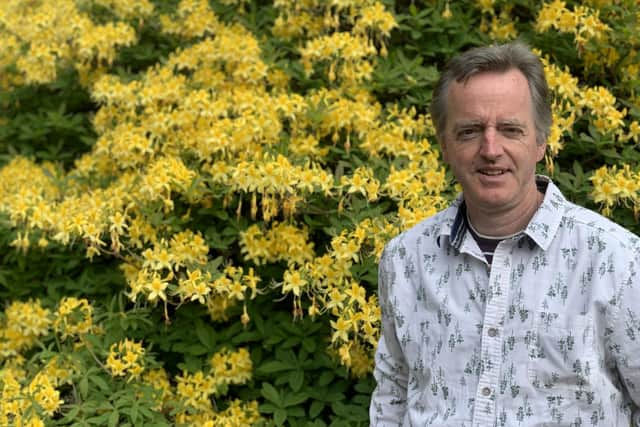Everything in the garden centre is not rosy - Ken Cox
Like every other business we are facing rising energy bills, high inflation and spiralling costs for raw materials, while our customers are trying to work out how they are going to afford to heat their homes this winter, put food on the table and meet mortgage payments that in some cases will have quadrupled.
Gardening falls into the category of ‘discretionary spending’ and the Covid gardening boom has not been sustained now that people are free to travel and socialise again, which means that this sector is having to work very hard for every pound that it brings in the door.
Advertisement
Hide AdAdvertisement
Hide AdThose garden centres which are thriving tend to be the ones that, as well as a strong offer in gardening, include a wide leisure experience, offering catering, interesting gifts and accessories and creating the sort of place where people want to linger. To that end, this year’s Christmas displays at Glendoick, which we launched on 1 October, are our most spectacular yet. We hope and believe that it will be enough to overcome low customer confidence, which most gardening and retail outlets are currently facing and early results are encouraging.


But Glendoick isn’t just a garden centre, it is also a specialist nursery, which has built an international reputation for breeding rhododendrons and azaleas. Until very recently 30% of Glendoick's mail order sales were to customers in Scandinavia, France, Germany, Italy and Ireland, but Brexit has put an end to all that. Ironically, the export of plants grown into the EU is now acceptable only for plants grown in peat, which we are no longer allowed to use. To resolve this problem and also to reverse the bans on the export of seed potatoes, shellfish and other products raised here in Scotland, the UK will need to rejoin the European single market.
The issue of the proposed peat ban for Glendoick is that we are specialists in acid-loving plants. These are plants such as rhododendrons, blueberries and heathers, which grow naturally on peat in the wild. Glendoick has spent many years reducing the peat content of our growing material to the absolute minimum but as yet there is no peat free compost suitable for commercial growing of these plants. Of course we recognise that there needs to be a significant fall in peat use and gardeners will need to get used to the withdrawal of peat-based compost by 2024.
A further challenge is that peat free alternatives are often as environmentally damaging as peat: shipping coir from Sri Lanka has a significant carbon footprint, needs much water to clean it and may harbour fungal pathogens. The sort of plants that we grow cannot be raised in containers without some peat in the mix, they depend on it for their survival, so Glendoick and other ericaceous plant growers are discussing an exception with DEFRA/ the UK government to allow peat to be used to grow certain plants. Without this dispensation, commercial production of some plants will move to Europe.
Next year, 2023, Glendoick's nursery marks its 70th anniversary, but without an exemption for limited peat use, the knowledge and experience built up over seven decades of rhododendron growing and innovation could be put at risk.
Ken Cox is Managing Director of Glendoick Garden Centre and Nursery
Comments
Want to join the conversation? Please or to comment on this article.